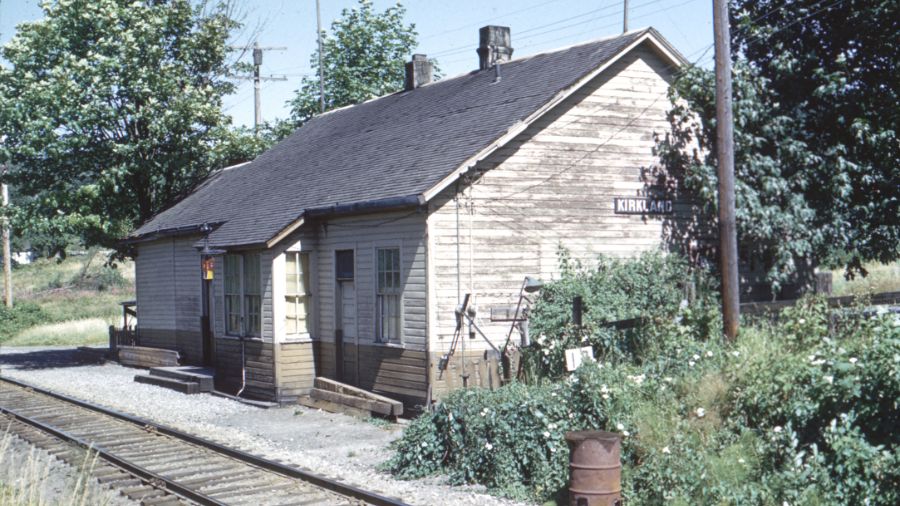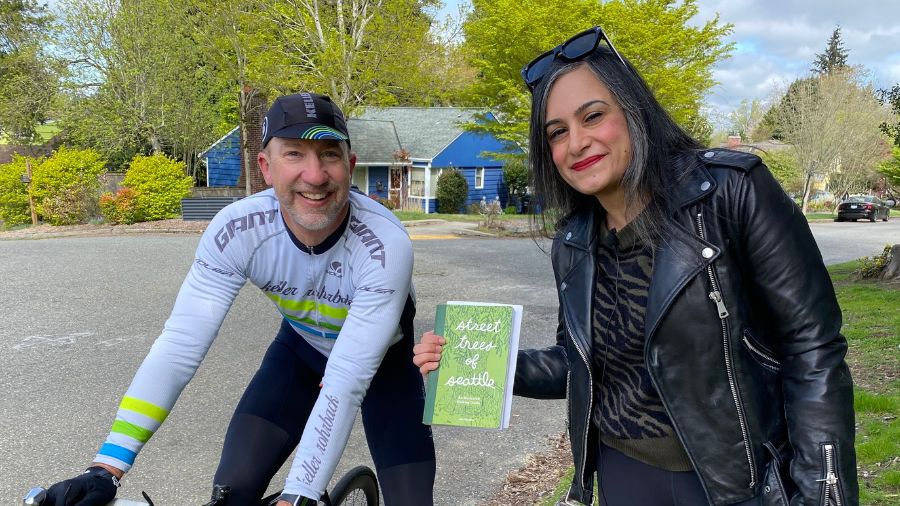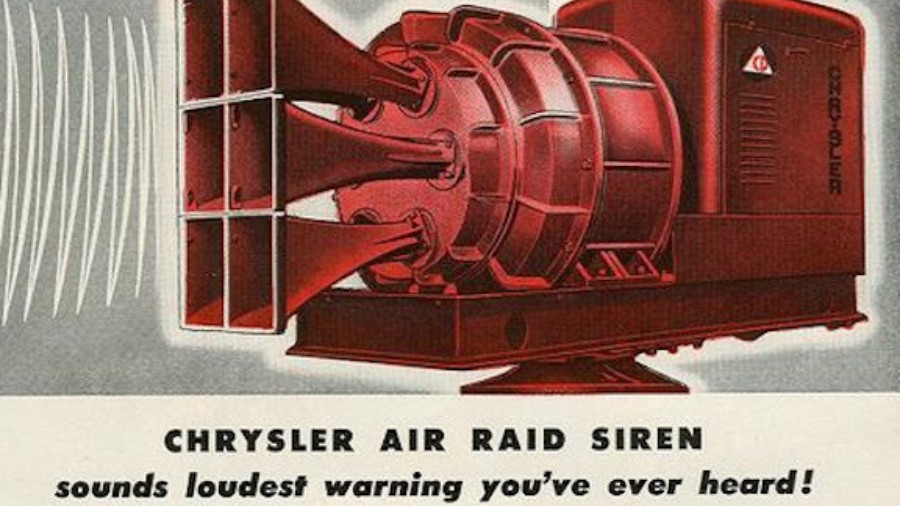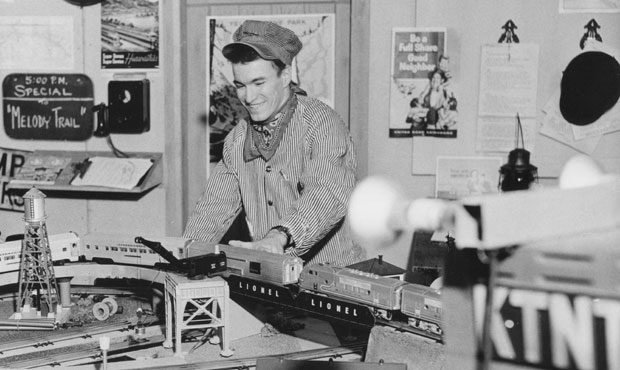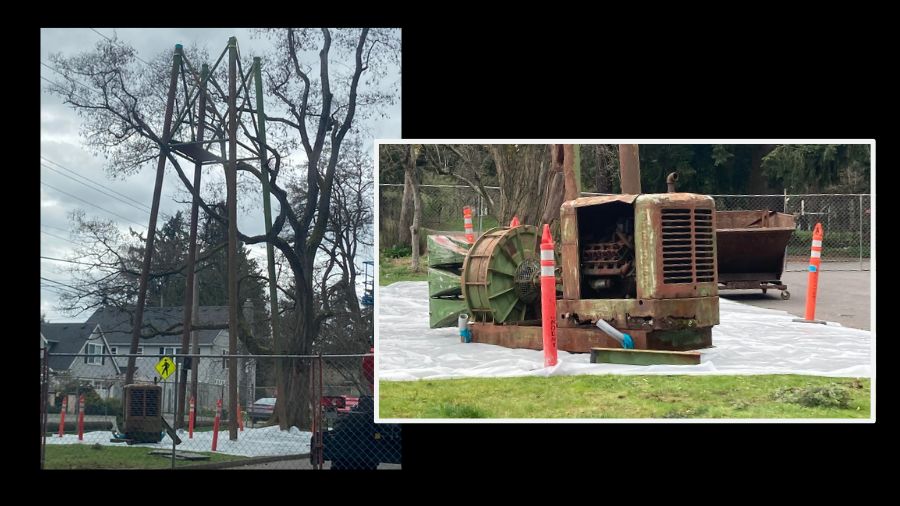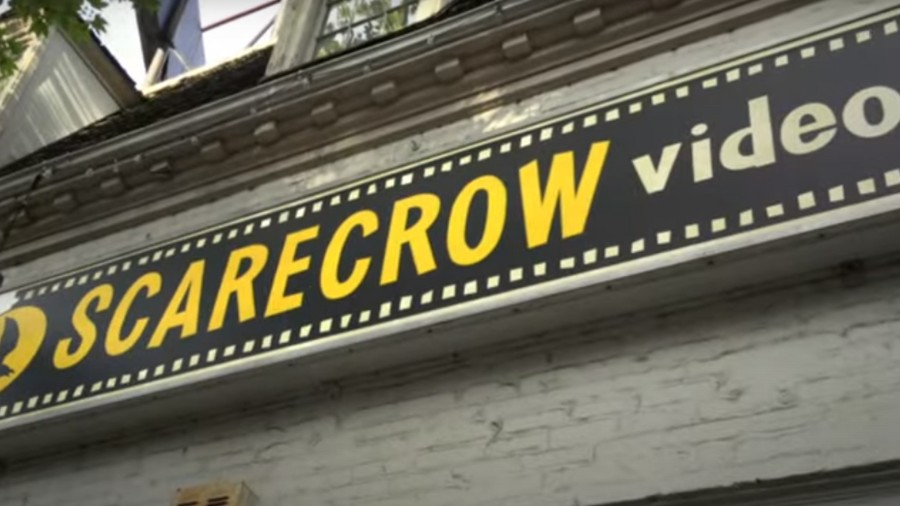All Over The Map: It’s STILL not pronounced ‘ORE-uh-GONE’
Sep 23, 2022, 9:29 AM | Updated: Oct 25, 2022, 4:19 pm

The Oregon - that's 'OR-uh-gun," NOT "ORE-uh-GONE" - state flag. (Oregon Historical Society)
(Oregon Historical Society)
When I hear someone incorrectly pronounce the name of The Beaver State as “Or-uh-GONE,” I think to myself:
— Feliks Banel (@FeliksBanel) September 23, 2022
You would think by now that those distant East Coast media types in plush studios atop their ivory towers would know how to pronounce the name of the state south of the Columbia River.
But if you thought that, you’d be wrong.
Anyone listening to public radio last weekend – to fill the time between broadcasts of the Mariners and the Seahawks on Seattle Sports 710 AM and KIRO Newsradio – would have heard at least two jarring examples of what can only be called “the ORE-uh-GONE effect.” Or maybe that should be “affect.”
In an episode of “This American Life,” author Amy Bloom told the story of her husband’s assisted suicide and pronounced Oregon like this…
Another example happened during the weekly episode of the news quiz show “Wait, Wait Don’t Tell Me,” when host Peter Sagal plugged some upcoming shows on a comedy tour.
Come on. Everyone knows it’s “OR-uh-gun.”
Unfortunately, these Beaver State pronunciation offenses are nothing new. Many adults can remember hearing people on television say “ORE-uh-GONE” back in the 1970s – even in the finale of the original Bob Newhart sitcom, where Dr. Hartley leaves Chicago to take a teaching job in Oregon. And many can recall even recent visits to the East Coast when “ORE-uh-GONE” came up in otherwise polite conversation.
But it was a little surprising to hear it twice in the same day on a couple of big, slick National Public Radio programs. It probably had some Oregonian listeners clutching their pledge drive totebags.
And the reason this matters here north of the Columbia River in Warshington – excuse me, I mean ‘Washington’ – goes back to one of the earliest eras of post-settlement, pre-contact local history. Though home to Indigenous people since time immemorial, Seattle and Puget Sound are considered part of the “Old Oregon Country,” and for decades this area was, for many, the end of the Oregon Trail. For five years – from 1848 to 1853 – what’s now the Evergreen State was officially within the boundaries of Oregon Territory.
As for the origins of the name “Oregon,” no one is exactly sure where it comes from. Is it related to the herb oregano (which is another name for marjoram), or to early explorers who had some connection to the region of Spain called Aragon? One telling says it is perhaps from a misprinting of “Ouisconsink” – an early francization of an Indigenous word for what became Wisconsin. Or, it could be from the French word “ouragon,” meaning ‘storm’ or ‘hurricane.’ The experts can’t really say – though Oregon’s first family of place-names discusses the mystery thoroughly and grippingly in their famous book “Oregon Geographic Names.”
Those authors recount that the name “Oregon” was never put in writing by Captain George Vancouver; Captain Robert Gray; American explorers Lewis & Clark; or John Jacob Astor, who founded the settlement at what’s now Astoria in 1811. A poem by American author William Cullen Bryant – “Thanatopsis” (pronounced “tha·nuh·TAAP·suhs, by the way) – published in 1817 is the first known appearance in print of the current spelling (though a 1798 chart came close – “Oregan”) as an alternate name for what’s now the Columbia River.
“Or lose thyself in the continuous woods
Where rolls the Oregon, and hears no sound,
Save his own dashings . . . ”
As far as the pronunciation goes, there’s a book (and podcast) called “You’re Saying It Wrong” by the American brother-and-sister writing team of Kathy Petras and Ross Petras both which address mispronunciations of all kinds of words and place-names. The Petras siblings are seasoned world travelers whose first writing project together was a play, crafted in Cairo, Egypt when they were 5 and 8 years old, respectively.
And though Kathy now lives in Spain and Ross lives in Eastern Canada, the two have connections to the Pacific Northwest; Kathy and her husband lived in Seattle in the past, and Ross’ wife is from here.
Neither Kathy nor Ross can definitively say why the “ORE-uh-GONE” pronunciation problem persists in the digital age. Bottomline, Ross says, correct pronunciation is absolutely key to effectively connecting with other human beings.
“I think ‘when in Rome speak as the Romans do,’ to some degree in terms of place names,” Ross told KIRO Newsradio. “And when in Oregon, speak as Oregonians do. And I do think it’s a matter of politeness and a matter of good taste and a matter of clearly communicating.”
“If I go to Oregon and say, ‘ORE-uh-GONE,’ the purpose of me talking is to communicate,” he continued. “As soon as I say ‘ORE-uh-GONE,’ people are not going to be thinking [about] what I’m saying, they’re going to be thinking, ‘he just mispronounced the name of our state.’”
“And I don’t think that’s a good idea,” he said.
It seems like these kinds of geographic mispronunciations were more understandable in a less connected age. My late mother was a young woman in London in the 1940s. When she read about Seattle in Betty MacDonald’s “The Egg and I,” she found her future home (which she didn’t know was her future home) to be charming place. She also assumed it was pronounced “SEE-dull.”
For some, well into the 21st century, Spokane is still “Spo-KAYNE,” and even lifelong residents around here still get Colville (“CALL-vill”) all wrong.
Maybe this is an opportunity for the state of Oregon to have one of those annoying tourism campaigns that raises a ruckus among the locals and confuses or maybe even comforts the target audience – something along the lines of “ORE-uh-GONE: No matter how you mispronounce it, it’s a great place to visit!”
You can hear Feliks every Wednesday and Friday morning on Seattle’s Morning News with Dave Ross and Colleen O’Brien, read more from him here, and subscribe to The Resident Historian Podcast here. If you have a story idea or questions, please email Feliks here.


